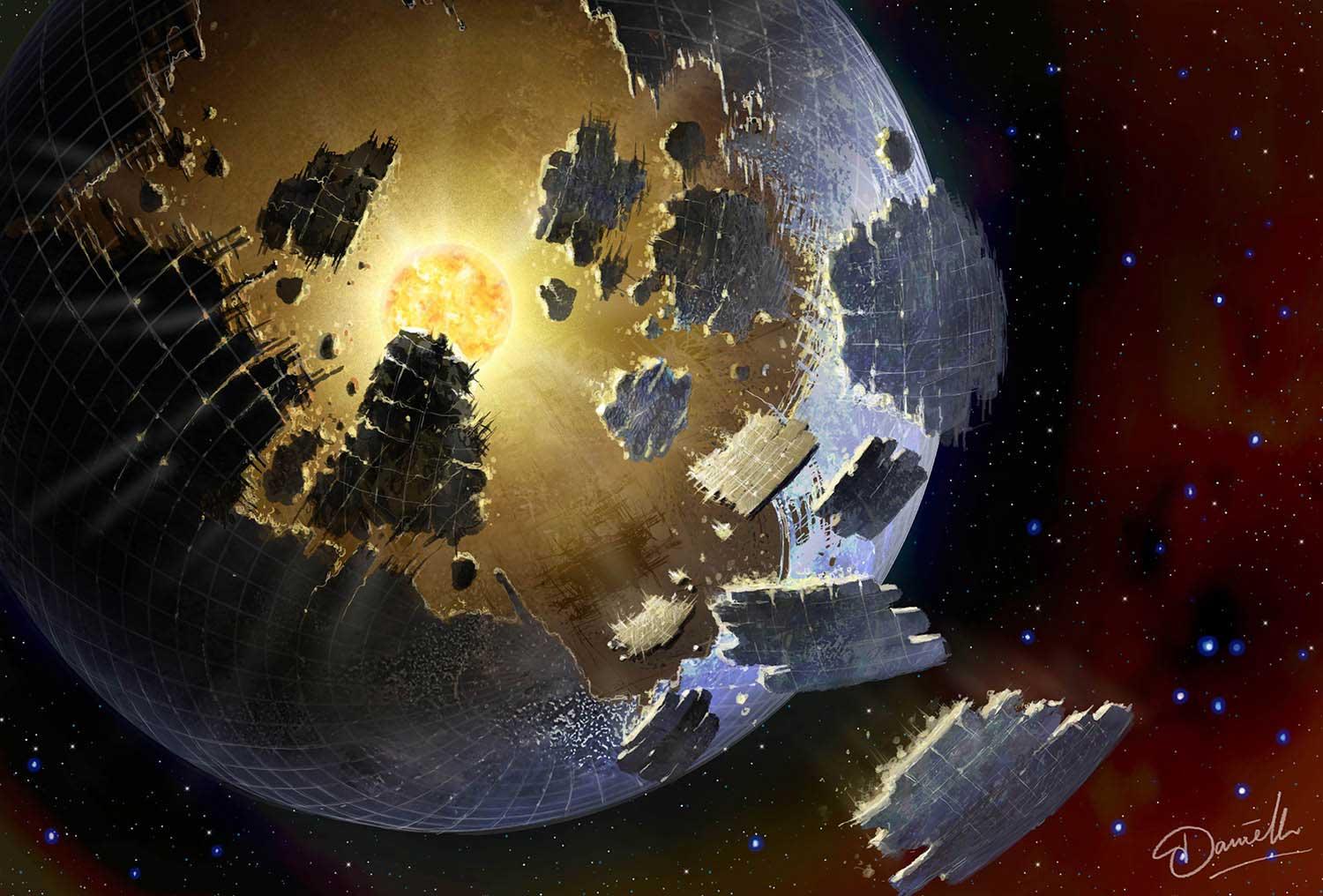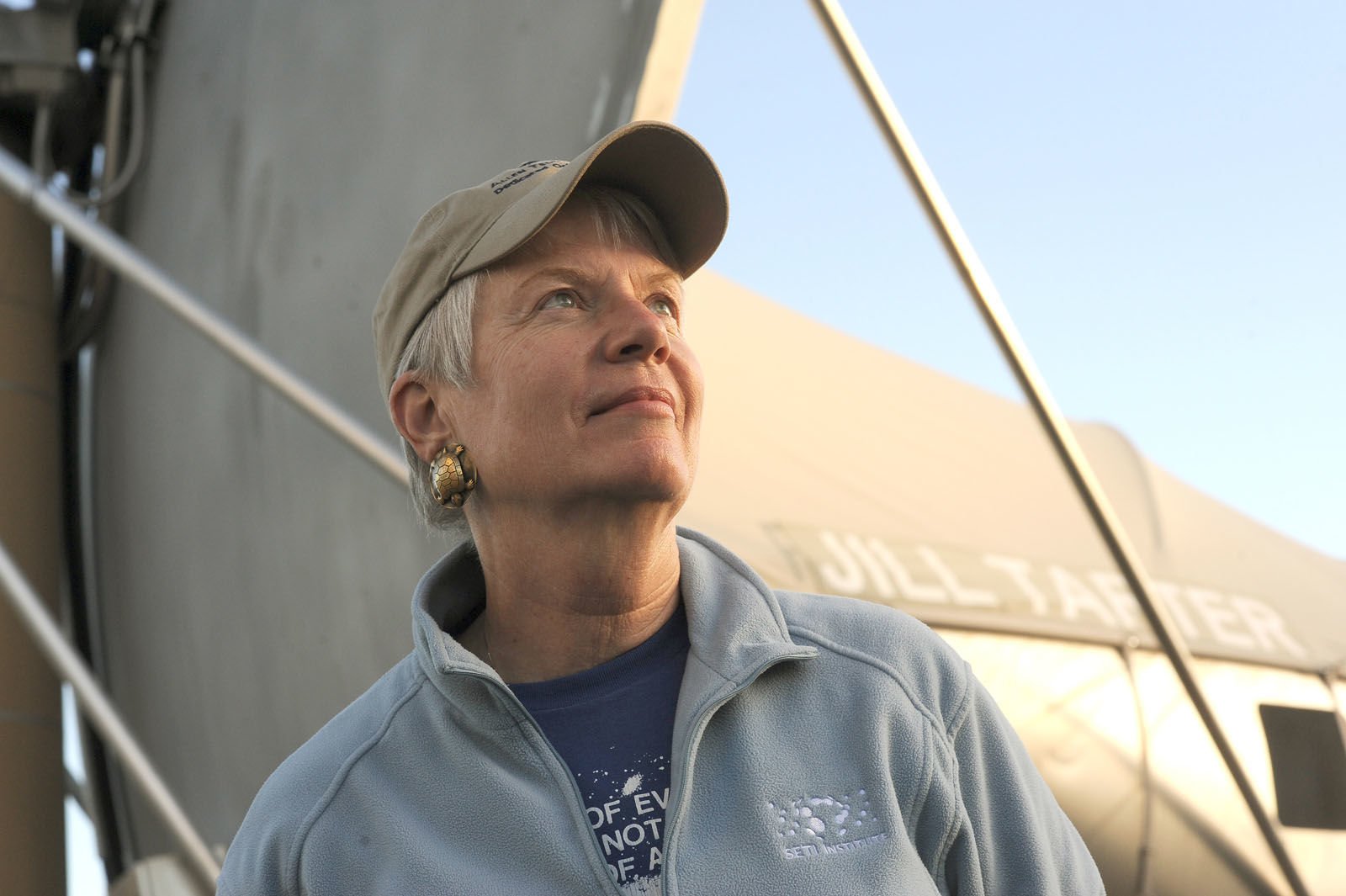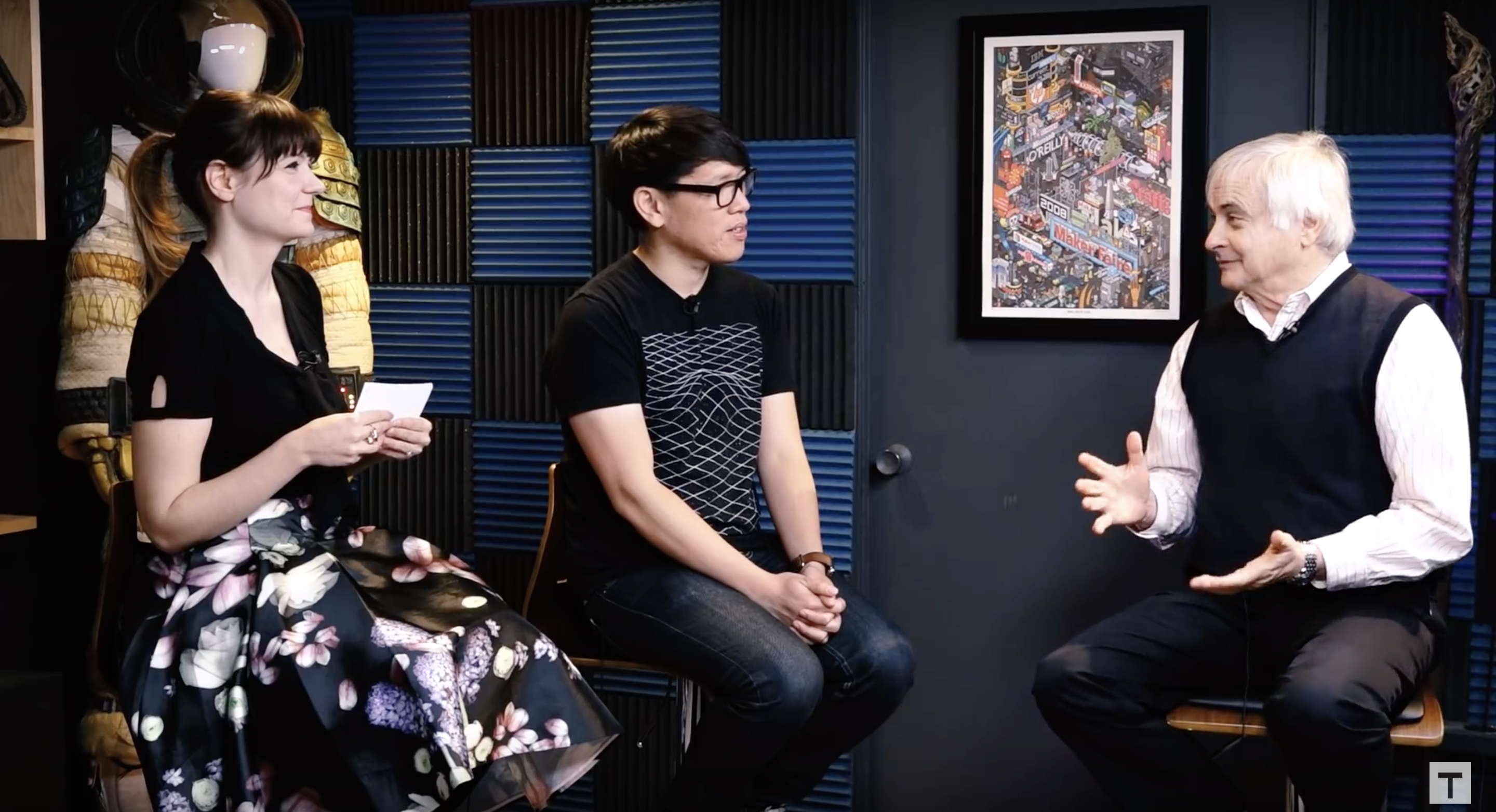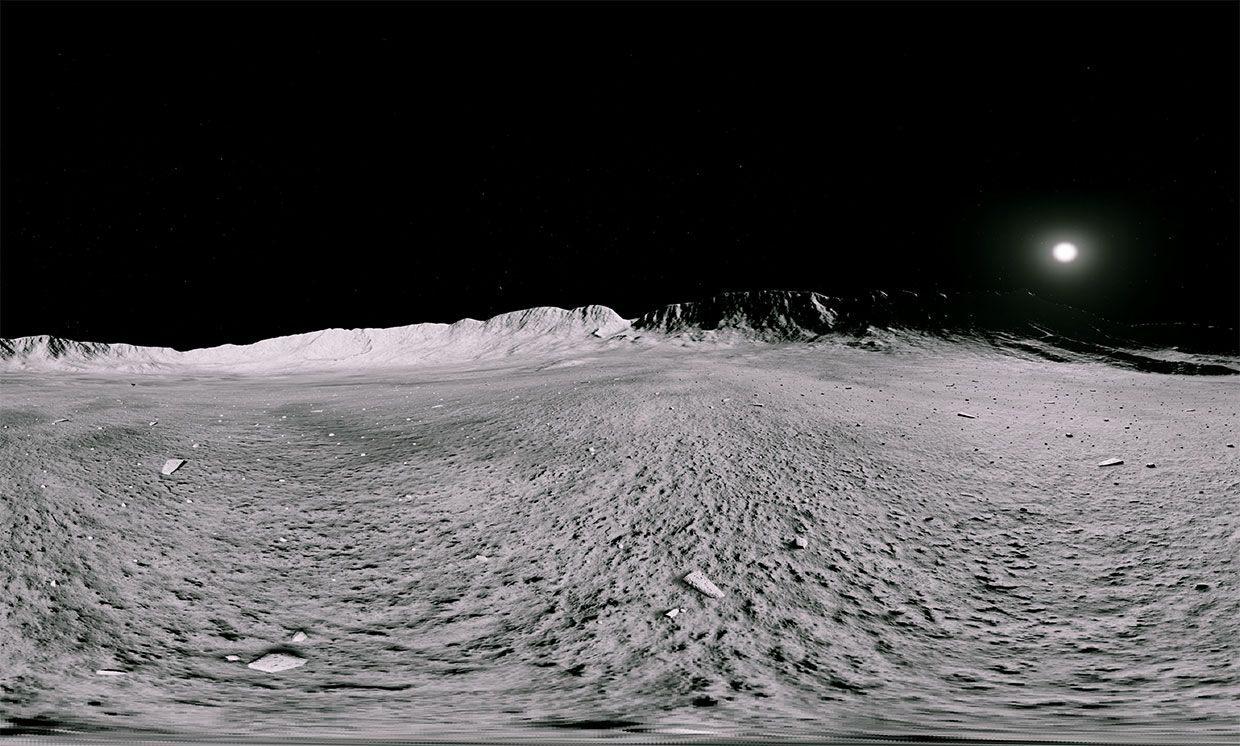
In the decades since NASA’s funding for the search for extraterrestrial intelligence was cut off by Congress, the SETI Institute took on the important work of seeking to answer the question: Are we alone? Now, with the discovery of an abundance of planets in our galaxy thanks to the Kepler and now the TESS missions, study of the strange behavior of what’s known as Tabby’s Star, and technological advances in detection strategies such as using AI to detect fast radio bursts, there’s a renewed interest in efforts to detect signs of alien technology.
With all this in mind, NASA announced its interest in exploring ways to search for technosignatures (signals or other hallmarks of technology) to determine if advanced technology exists elsewhere in the universe. To that end, a workshop was held at the Lunar and Planetary Science Institute (LPSC) in Houston, with a number of experts from the SETI Institute in attendance. Some speakers of note: Jill Tarter, co-founder of the SETI Institute and Chair Emeritus for SETI Research; Bill Diamond, President & CEO of the SETI Institute; Andrew Siemion, Bernard M. Oliver Chair for SETI Research at the SETI Institute and director of the Berkeley SETI Research Center; and Eliot Gillum, Director of Optical SETI at the SETI Institute.
This assessment of the current research efforts in technosignatures – work the SETI Institute is particularly known for – marks a notable shift, and is a hopeful sign for those who have wished for more robust support for research into the nature of life in the universe.
- GeekWire: Are we alone? NASA turns to the search for technosignatures beyond Earth
- Sci Tech Daily: NASA Exploring Ways to Search for Life Advanced Enough to Create Technology
- NASA: NASA Is Taking a New Look at Searching for Life Beyond Earth
Why haven’t we found a single piece of decisive proof of any advance society in the cosmos beyond our own? According to Jill Tarter, Chair Emeritus for SETI Research and co-founder of the SETI Institute, it’s simple: we’ve hardly looked. CNet reported on the talk Tarter gave at the recent NASA technosignatures workshop, which featured presentations from several SETI Institute scientists:
"The cosmic haystack these signals could be found in is really huge," SETI pioneer Jill Tarter said during a presentation at NASA's first formal "technosignatures" workshop in Houston on Wednesday… Tarter compares the search to looking for a fish, any fish, in all of Earth's oceans by examining a single drinking glass of sea water, where the oceans represent the totality of the universe and the glass of ocean water is the portion of the universe we've checked for alien signals so far.
A recent paper co-authored by Jason Wright of Penn State suggests we’ve improved that ratio somewhat… we’ve upgraded from a glass of water all the way up to, according to Wright, “something like a large hot tub or small swimming pool's worth of water out of all of Earth's oceans”. It might not sound like much, but new technologies have nonetheless offered unprecedented opportunities to search our universe.
- CNet: We haven't found aliens because we can't see past our cosmic hot tub
- ArXive.org: How Much SETI Has Been Done? Finding Needles in the n-Dimensional Cosmic Haystack
 The Search for Extraterrestrial Intelligence Continues
The Search for Extraterrestrial Intelligence ContinuesJill Tarter, co-founder of the SETI Institute and Chair Emeritus for SETI Research, spoke at Wyoming Stargazing’s “World Above the Tetons” speaker series in Jackson Hole. A pioneer in the search for extraterrestrial intelligence, Tarter brings her remarkable perspective and experience to her presentations, as the Jackson Hole News & Guide noted ahead of the event:
“I’ll show really beautiful images having to do with the cosmos,” Tarter said [of] her presentation, “and try to explain how intimately connected we all are with this vast universe and huge time scale. … I try to challenge people’s perspective, to give them a cosmic perspective. I think that’s an important thing. We’ve got so many challenges on this planet, if we don’t take the larger view — see ourselves as part of one system, that we’re all the same — we’re not going to solve them.”
Tarter discussed the great technological leaps that have allowed scientists to make significant advances in their research:
“Right now, what we’re doing is 14 or 15 powers of 10 more comprehensive than the search Frank Drake did,” Tarter said of 21st-century technology and computational capability. “And it’s only going to get better. We can do today what we couldn’t imagine doing yesterday, and tomorrow we’ll be doing what we can’t conceive of today.”
Despite the overwhelming vastness of our universe, Tarter has maintained a steadfast urgency in her advocacy of the SETI Institute and its important mission:
Tarter said the most important thing that we humans do is to explore — “to come up with new answers and solutions to old problems and to think of new questions to ask and to understand our place in the universe.” The search for extraterrestrial intelligence, then, is not some lark, some plot for science fiction. It is the logical and inevitable destination of all of our scientific inquiries. And, even more thrilling, it is the jumping-off point of the next leg of our journey.
- Jackson Hole News & Guide: Expert to discuss search for alien life
 Seth Shostak and Jill Tarter on Offworld
Seth Shostak and Jill Tarter on OffworldSeth Shostak, senior astronomer at the SETI Institute, appeared in an episode of Offworld, the show produced by Adam Savage’s Tested site and hosted by Ariel Waldman and Norm Chan. Shostak, due to a long career as an ‘alien hunter’ and his experience consulting on a number of science fiction films, has a unique perspective on the show’s chosen topic: the trope of first contact. Watch to find out what Shostak believes E.T. might look like, what aliens might want from humanity if they pay us a visit, and what the future of humanity might be if we make contact with an alien society.
Offworld’s very first episode, now available as an audio podcast, featured the SETI Institute’s co-founder, astronomer Jill Tarter. Dr. Tarter is now the Chair Emeritus for SETI Research, and earned her pop-culture fame as the inspiration for the main character, Dr. Ellie Arroway, in the 1997 film, Contact. Watch or listen to hear the true story that inspired the character, and how the film in turn inspired many to pursue careers in science.
- YouTube: What Would "First Contact" Be Like? - Offworld Episode 10
- Adam Savage’s Tested: Offworld, Episode 1: Contact (1997) with Dr. Jill Tarter
 Frontier Development Lab’s “GPS” for the Moon May Eventually Work on Mars
Frontier Development Lab’s “GPS” for the Moon May Eventually Work on MarsFrontier Development Lab (FDL), an AI research accelerator powered by NASA and the SETI Institute, has developed a kind of “GPS in space”, that allows for navigation in the absence of satellites. Using deep learning, the participants were able to teach an algorithm to recognize surface features in images taken (virtually) from the ground, and match those with locations on a simulated orbital map. While the original plan used a mock-up of the Lunar surface, the technology has obvious potential for both manned and unmanned missions to Mars. While applying the algorithm to the planetary body would be a massive step, the availability of surface images from past NASA missions to Mars is a promising asset.
- IEEE Spectrum: AI Learns to Guide Planetary Rovers Without GPS
Big Picture Science
In last week’s episode, BiPiSci’s monthly look at critical thinking examines whether medical science can compete with alternative medicine and self-diagnosis through apps and AI, in Skeptic Check: Heal Thyself. On our previous week’s episode, find out what your DNA is hiding in DNA: Nature’s Hard Drive.
On our previous episode of Facebook Live, SETI Institute scientists Franck Marchis and Doug Caldwell discuss the great work of the Kepler space telescope, as the exoplanet-detecting craft nears the end of its life. Videos of all past Facebook Live events can be found on our Facebook page: https://www.facebook.com/SETIInstitute/
- Maria Mitchell Women in Science Symposium: October 5-6, Wellesley, MA Jill Tarter will be a keynote speaker
- First Fridays at Chabot Space & Science Center: October 5, Oakland, CA The SETI Institute’s JR Skok will talk about AstroReality and Made of Mars.
- Wired 25th Anniversary Festival: October 12-15, San Francisco, CA Jill Tarter, co-founder of the SETI Institute, will take part in the festival and present "The 21st Century: The Century of Biology on Earth and Beyond"
- Fermilab Arts and Lecture Series: October 12, Batavia, IL Jill Tarter, SETI pioneer and Chair Emeritus for SETI Research at the SETI Institute will present
- Science with HabEx: UV to Near-Infrared Space Astronomy in the 2030s: October 15-16, New York, NY SETI Institute Senior Scientist Franck Marchis will be an invited speaker
- SETI Talks: October 16, Menlo Park, CA From Cowboys to Communities: Changing the Face of Space Exploration The SETI Institute’s Margaret Race will be joined by Jan Millsapps, Professor Emeritus of Cinema at San Francisco State University and Brian Patrick Green, director of technology ethics at the Markkula Center for Applied Ethics at Santa Clara University
- SpaceTalks: October 20 Jasper, Alberta Canada Seth Shostak will participate in the panel discussion
- Division of Planetary Sciences Meeting: October 21-26, Knoxville, TN SETI Institute scientists are expected to participate
- NASA’s Kepler & K2 Missions: October 24, Bremerton, WA Jeff Coughlin, SETI Institute scientist and Director of the K2 Science Office, will giving a public talk at Olympic College in Bremerton, WA.
- The Undiscovered: October 26, Cambridge, MA Jill Tarter, Chair Emeritus for SETI Research at the SETI Institute will be a keynote speaker
- Toward an All-Sky Radio SETI Telescope: October 29-31, Manchester, UK Jill Tarter, Chair Emeritus for SETI Research at the SETI Institute is a member of the Scientific Organizing Committee
- 2018 Solar Dynamics Observatory Science Workshop: Catalyzing Solar Connections: October 29-November 2, Ghent, Belgium SETI Institute Research Scientist Meng Jin is a member of the Science Organizing Committee





